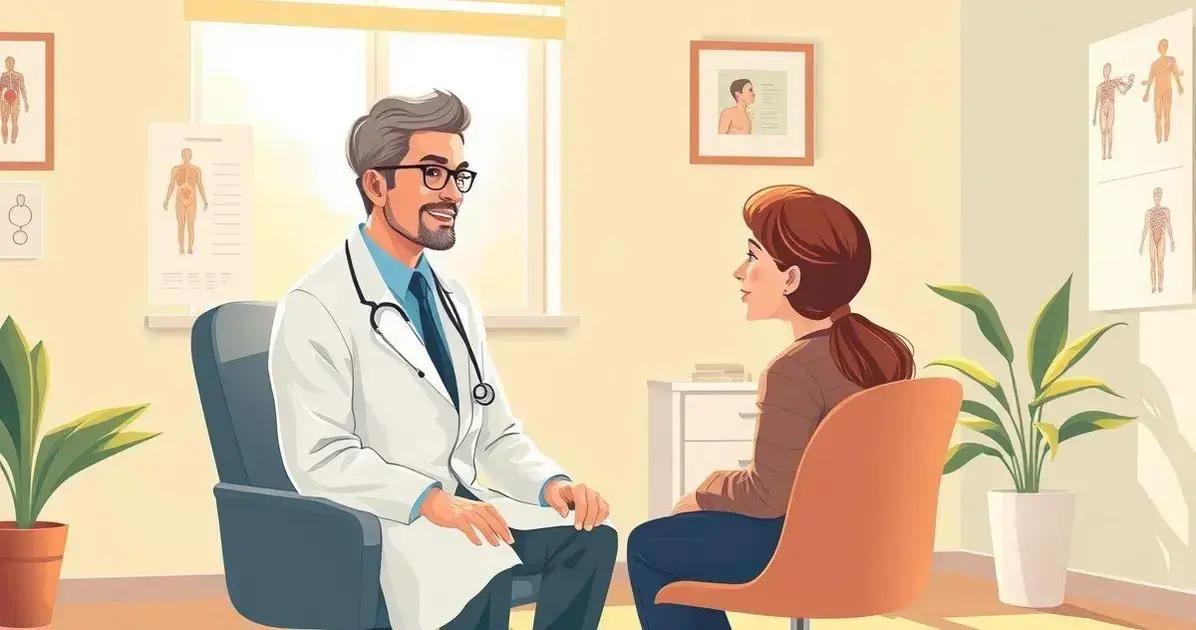Regular check-ups for sexual health are essential for early detection of STIs and maintaining overall well-being. Key components include STI screenings, pelvic and testicular exams, and hormonal assessments. Schedule these check-ups at least annually, particularly if you have multiple partners or exhibit symptoms. Education, open communication with partners, and proactive health management empower individuals to take charge of their sexual health effectively.
Regular check-ups for sexual health are crucial in maintaining overall well-being. They provide essential insights into your body and help catch potential issues before they escalate. Many people overlook the significance of these visits, but they are vital for ensuring a healthy sexual life. In this article, we will delve into the importance of regular check-ups for sexual health, highlighting what tests to expect and when to make your appointments.
Understanding Sexual Health Check-Ups

Understanding Sexual Health Check-Ups is important for everyone. These check-ups allow healthcare professionals to evaluate your sexual health and identify any issues early on. They are private and safe visits meant to improve your well-being.
During a sexual health check-up, you’ll discuss personal health concerns, including sexual activity, contraceptive use, and any symptoms you might have. This conversation is key as it helps your doctor understand what tests or exams are needed.
What to Expect at a Check-Up
Typically, a sexual health check-up involves a physical exam and possibly laboratory tests. Healthcare providers may conduct screenings for sexually transmitted infections (STIs), perform pelvic exams for women, and test hormone levels. These procedures ensure that any health issues are caught and addressed promptly.
Confidential and Supportive Environment
It’s important to know that these appointments are confidential. Your healthcare provider will not share your information without your consent. They create a supportive atmosphere to make you feel comfortable discussing sensitive topics.
Additionally, check-ups offer a chance to ask questions about sexual health, relationships, and any concerns you may have. Don’t hesitate to express your worries; your health is the priority.
Why Check-Ups Are Essential
Regular check-ups help maintain a healthy sexual life. They can detect STIs early, reduce the risk of complications, and promote informed choices about sexual activity and health. Remember, understanding your sexual health is a key part of overall wellness.
Why Regular Check-Ups Matter

Why Regular Check-Ups Matter is a question many might ask. Regular check-ups are essential for several reasons. First and foremost, they help detect potential problems early. Early detection of sexually transmitted infections (STIs) or other health issues can lead to more effective treatment.
Another reason is peace of mind. Knowing your sexual health status can ease anxieties and help you make informed decisions about your relationships and well-being. It empowers you to take control of your health.
Building a Healthier Future
Regular check-ups also encourage healthier behaviors. When you understand the risks and benefits of sexual health choices, it can motivate you to practice safe sex, maintain a healthy lifestyle, and have open conversations with partners.
Supporting Mental Health
Your sexual health is closely linked to your mental health. Regular visits can reduce feelings of shame and anxiety regarding sexual issues. It normalizes the conversation around sexual health and encourages a proactive approach.
A Key Part of Preventive Care
Lastly, sexual health check-ups are a vital component of preventive healthcare. They are not just about treating illnesses; they focus on prevention, education, and maintaining a healthy sexual life for the long term.
Common Tests Included in Check-Ups

Common Tests Included in Check-Ups are essential for monitoring your sexual health. These tests are designed to check for various conditions that can affect your wellbeing. Here are some common tests you might expect during a check-up.
STI Screenings
Screenings for sexually transmitted infections (STIs) are a key part of sexual health check-ups. Common STIs include chlamydia, gonorrhea, syphilis, and HIV. Testing can involve urine samples, blood tests, or swabbing areas for examination.
Pelvic Exams
For women, pelvic exams are often part of the check-up. This exam allows healthcare providers to assess the health of your reproductive organs. It can help detect conditions such as fibroids, infections, and cervical cancer.
Testicular Exams
Men may undergo testicular exams during their check-ups. This exam checks for lumps or abnormalities that could indicate testicular cancer or other conditions affecting the testes.
Hormonal Assessments
In some cases, hormonal assessments might be conducted. These tests measure hormone levels that can impact sexual health, such as testosterone in men or hormonal balance in women.
General Health Tests
Lastly, general health tests may be included, such as blood pressure checks or cholesterol levels. These are important because sexual health is closely linked to overall health.
When to Schedule Your Check-Ups

When to Schedule Your Check-Ups is a question many people have. Knowing when to book these appointments is vital for maintaining sexual health. Here are some guidelines to help you decide.
Frequency of Check-Ups
For sexually active adults, it is generally recommended to have check-ups at least once a year. This helps ensure that any potential issues are caught early. If you have multiple sexual partners or engage in high-risk behaviors, consider scheduling check-ups more frequently.
Age Considerations
Your age can also affect when you should schedule these appointments. Young adults aged 18-24 should have regular check-ups, as many STIs are most common in this age group. Women should have their first pelvic exam by age 21, regardless of sexual activity, while men should start regular screenings around the same age.
Post-Exposure Precautions
It’s also wise to schedule a check-up after potential exposure to STIs. If you have had unprotected sex or a new partner, visit your healthcare provider as soon as possible for testing.
Symptoms and Concerns
If you experience symptoms such as unusual discharge, pain, or discomfort, don’t wait until your next scheduled appointment. Seek medical attention right away to address these concerns.
Routine Wellness Checks
Finally, incorporate sexual health check-ups into your overall wellness routine. Regardless of your health status, regular visits help maintain your sexual health as part of holistic care.
Taking Charge of Your Sexual Health

Taking Charge of Your Sexual Health is an important step towards overall wellness. By being proactive, you can maintain a healthy sexual life and empower yourself with knowledge.
Educate Yourself
The first step is to educate yourself about sexual health. Understand the risks of STIs and safe sex practices. Being informed helps you make better choices about your sexual health.
Open Communication
Have open conversations with your sexual partners about health. Discuss testing, safer sex practices, and each other’s health history. This promotes trust and responsibility in your relationships.
Regular Check-Ups
Make regular check-ups a part of your routine. Don’t wait for symptoms to arise; schedule appointments to stay on top of your sexual health. These visits are key to prevention and early detection.
Use Protection
Always use protection, such as condoms, to reduce the risk of STIs and unintended pregnancies. Knowledge of proper usage is important to maximize effectiveness.
Know When to Seek Help
If you notice any changes in your body or have concerns, don’t hesitate to seek medical help. Early intervention can lead to better outcomes, and your health is always worth discussing.
Taking Control of Your Sexual Health
Understanding the importance of regular check-ups for sexual health empowers you to navigate your health journey confidently. From recognizing the need for regular visits to comprehending the common tests included, this knowledge plays a vital role in maintaining your overall wellbeing.
By knowing when to schedule check-ups and taking proactive steps, such as educating yourself and communicating openly with partners, you can significantly enhance your sexual health. Regular check-ups not only allow for early detection and prevention but also foster a sense of responsibility towards your health.
Ultimately, taking charge of your sexual health leads to better outcomes, promotes healthy relationships, and ensures that you enjoy a fulfilling and safe sexual life.
FAQ – Frequently Asked Questions about Sexual Health Check-Ups
Why are regular sexual health check-ups important?
Regular sexual health check-ups are important for early detection of STIs and other health issues, promoting overall well-being.
What tests are typically included in a sexual health check-up?
Common tests include STI screenings, pelvic exams for women, testicular exams for men, and hormonal assessments as needed.
How often should I schedule my sexual health check-ups?
It’s advisable to have check-ups at least once a year; however, more frequent visits may be necessary if you are at higher risk.
What should I do if I experience symptoms related to sexual health?
If you notice any unusual symptoms, such as discharge or pain, seek medical attention immediately rather than waiting for a scheduled check-up.
How can I take charge of my sexual health?
You can take charge by educating yourself about sexual health, having open discussions with partners, and scheduling regular check-ups.
What should I discuss with my healthcare provider during a check-up?
Discuss your sexual activity, any concerns or symptoms, and your health history to ensure appropriate testing and advice.













